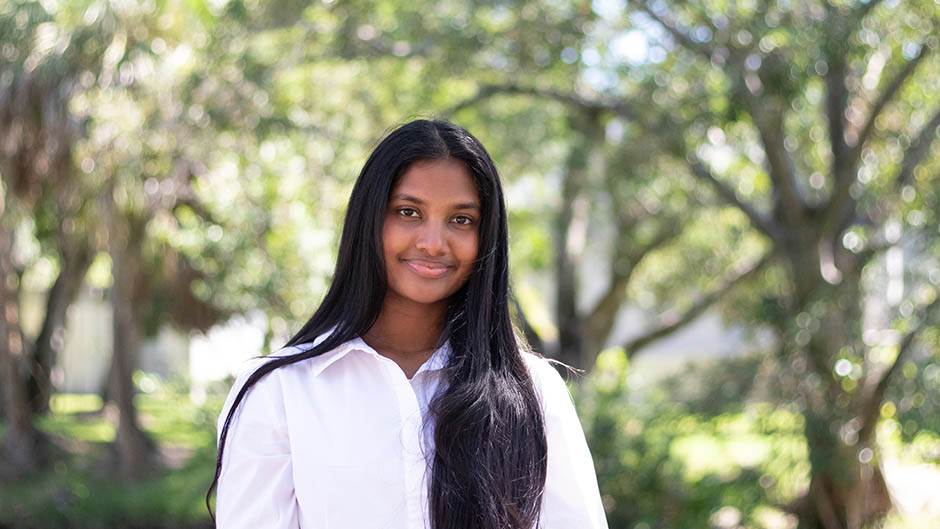“Shush!”
“Shushes” always followed any comment about periods when Gayathri Samuel was a child growing up in Sri Lanka.
Menstruation was such a taboo topic, no matter the setting. Gayathri recalls the women in her family hiding menstrual hygiene product wrappers at the bottom of bathroom trash bins. Even at a young age and before starting her own cycle, Gayathri was puzzled at the nature of the conversation surrounding menstruation, something she was taught was an expected part of life.
With 1.8 billion people menstruating across the world every month, according to UNICEF, her puzzling feelings weren’t misplaced.
Coming to America
Gayathri and her mother and father immigrated to the United States when she was 8 years old. They settled in Miami and set out to learn English while starting an orchid business in Coconut Grove.
JJ’s Orchids is where Gayathri got her start as an entrepreneur. She picked up English quickly while in school, so she was indirectly tasked with helping her parents decipher the mountains of paperwork required to launch a business.
Years later, that experience drove Gayathri, who graduates on May 12, to pursue business law at the University of Miami Patti and Allan Herbert Business School. Recently accepted to the University of Miami School of Law, Columbia Law School, and NYU School of Law to name a few, Gayathri hopes to aid small businesses like her family’s through the minutiae of launching a business, pro bono or at affordable costs.
As she toys with which law school to attend, Gayathri continues to fuel the fire that was ignited within her years before when she watched the women in her family cringe at any utterance of menstruation.
Hygiene for Women
After a 4-hour flight, and with Google Translate readily available, Gayathri Samuel arrived in Mexico City, Mexico.
This would be the third trip she took to combat period poverty through the non-profit organization she founded, Hygiene for Women (HFW). Period Poverty refers to the phenomenon of people lacking access to menstrual hygiene tools or education across the world. HFW strives to eradicate period poverty and stigma through service, education, and advocacy.
“I saw it happen in Sri Lanka. I saw it in the United States. I was over it,” said Gayathri when reflecting on the moments that led her to create HFW. “Through research, I found that women were repurposing plastic bags, toilet paper, and other things because they didn’t have pads.”
In Mexico, Gayathri provided a year-long supply of menstrual hygiene products to a women’s shelter, in partnership with another non-profit organization, Women’s Empowerment Network. Since its inception in 2018, HFW has traveled to India and Sri Lanka and provided several organizations like Sri Jinananda Children’s Development Center with a six-month supply of menstrual hygiene products.
Up next, Gayathri will be fighting period poverty in Colombia.
In tune with her efforts internationally, Gayathri also focuses on confronting hygiene needs at home in Miami.
A study found that nearly 64 percent of women who were surveyed could not afford necessary menstrual hygiene supplies. Locally, Gayathri closely works with organizations like the Miami Rescue Mission and The Lotus House, to regularly donate necessary hygiene products and educate people on feminine care. Since founding Hygiene for Women, Gayathri has donated over 12,000 hygiene products locally and abroad.
Gayathri has utilized many resources at the University of Miami to continue to expand and fine-tune her efforts. She was recently selected as one of eight ’Canes to participate in the Clinton Global Initiative University, a year-long service-oriented and mentorship program led by the Butler Center for Service and Leadership.
“I’ve had so many opportunities since arriving in the U.S. and even UM. From events at the Business School to meeting alumni, I have made several meaningful connections that have aided my work,” Gayathri said, “I feel that it is my responsibility to give back and remove stress from others’ lives. It’s my ‘why.’”

